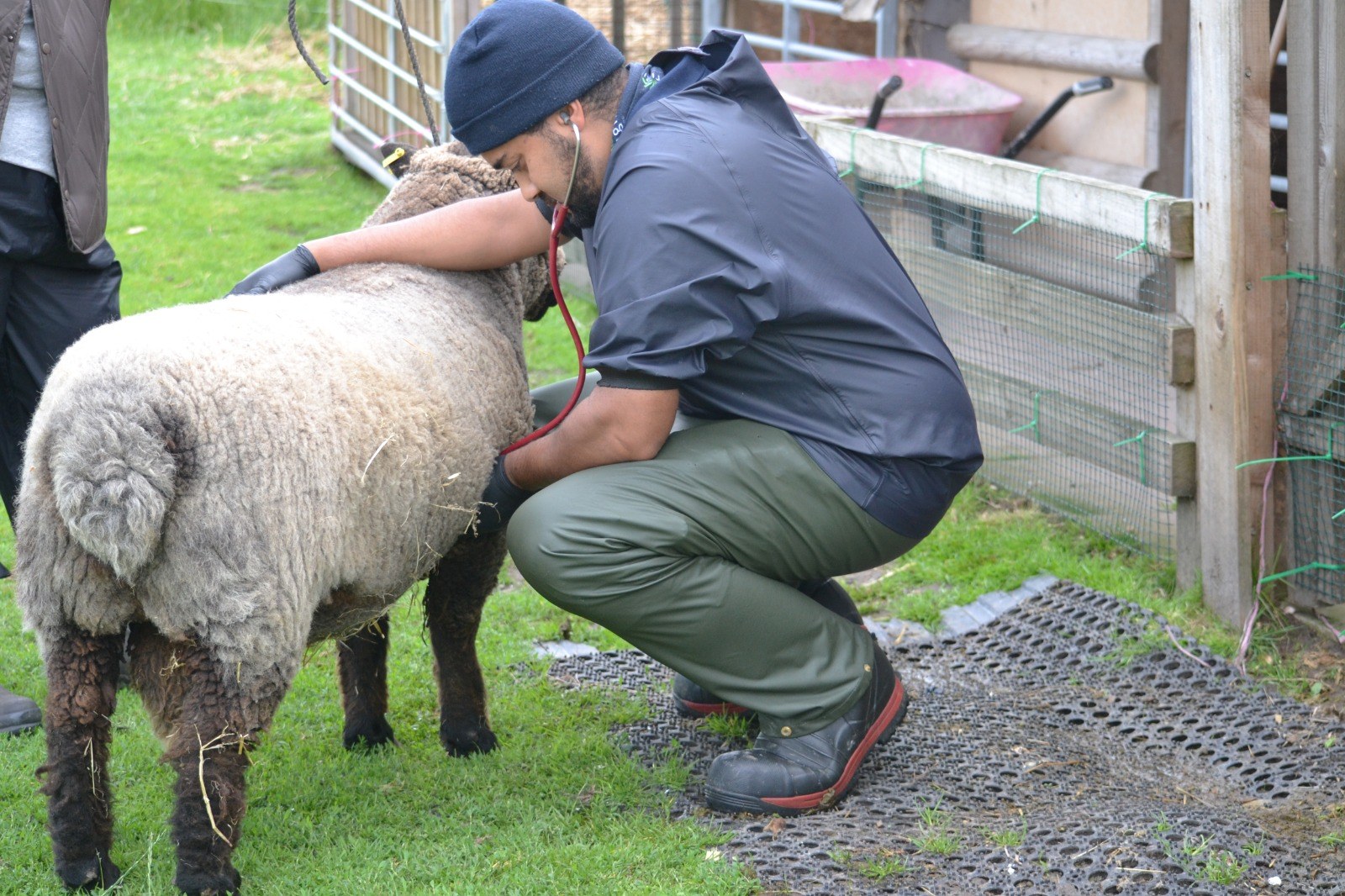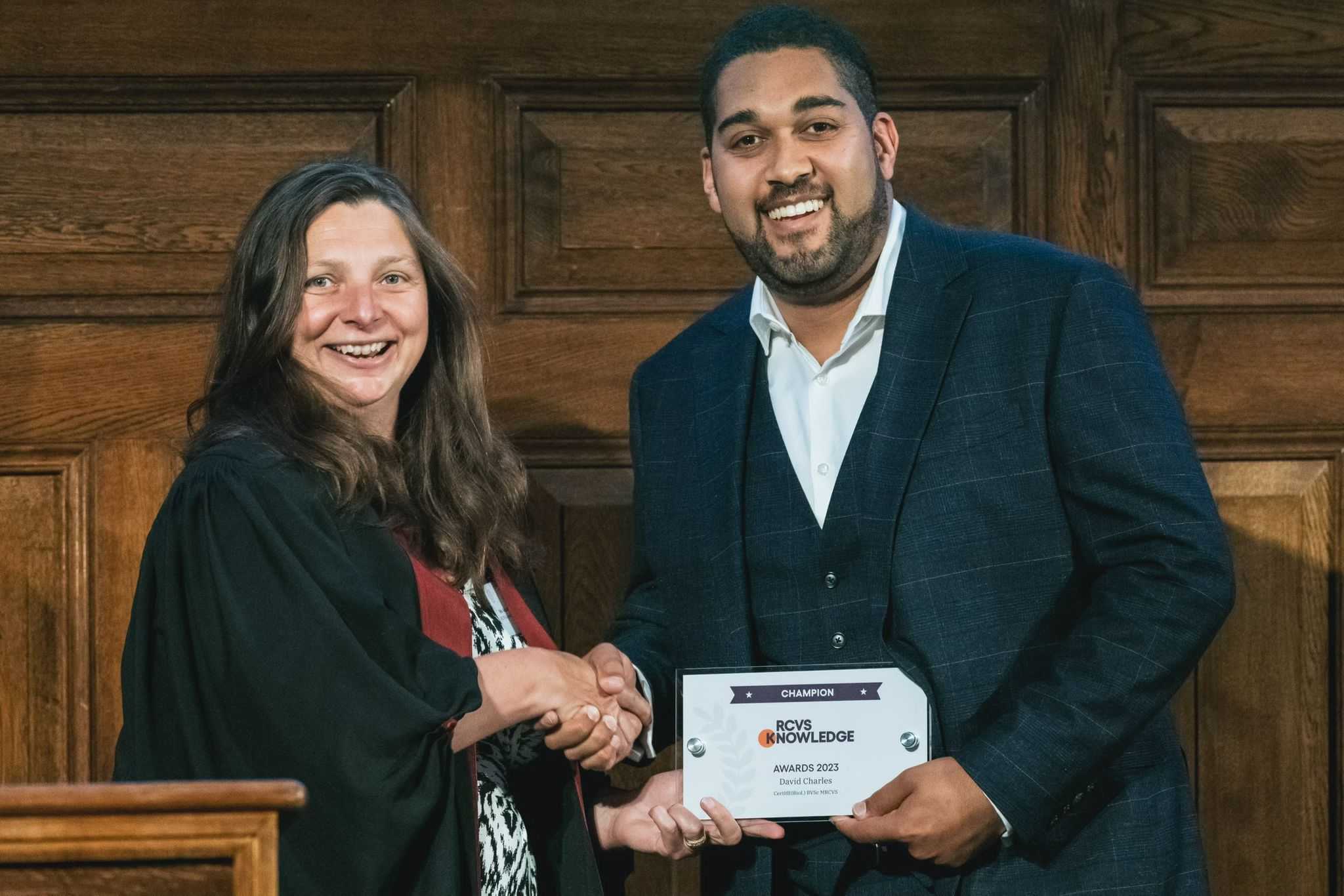Meet David Charles recent winner of the RCVS Quality Improvement award
David was awarded the RCVS QI award for his clinical audit work within the IVC farm vet group looking into analgesia, anaesthesia, and antibiotic use for sheep caesareans and lambings/assisted vaginal deliveries focusing on how use of these medicines impacted survival outcomes post-procedure. Read more about his story here.
Hannah Davies
Meet David Charles, CertHE (Biol.) BVSc CertAVP PGCertVPS MRCVS, Farm vet, and recent winner of the RCVS Quality Improvement award. RCVS recognised David’s clinical audit work completed within the IVC farm vet group looking into analgesia, anaesthesia, and antibiotic use for sheep caesareans and lambings/assisted vaginal deliveries. His audit focused on how use of these medicines impacted survival outcomes post-procedure, after recognising a gap in the evidence base in this area. David is the epitome of what can be done within a first opinion setting, showcasing how clinical audits can be completed in practice but with wider reaching impact improving the health and welfare of animals under our care.
David has followed an interesting career pathway, attending The University of Birmingham to study Genetics, but soon realising that his true passion was to become a vet. David relocated to Bristol Vet School, and took up a part time role as barman and bar manager whilst completing his veterinary degree. David’s passion for farm practice developed whilst attending an encouraging and supportive EMS placement in Northumberland alongside a good friend of his who had recently been employed as a new graduate. It became clear to David that he was a true people person and enjoyed building strong relationships with farm clients as well as having bigger picture conversations about sustainable farming practices and improving land management.
After graduating in 2019, David started out in a supportive mixed practice in East Anglia. Within the first year in practice, he decided to search for a wider farm case load, moving to Scarsdale vets within the IVC group. Despite starting a new job in the midst of a global pandemic and national lockdown restrictions, David thrived in this environment, motivated to do as much as he could, but with support at the end of the phone should it be required.
The idea of doing a clinical audit first came to David when he wanted to highlight the evidence base supporting the use of gloves when performing ram vasectomy. After realising how achievable it was to conduct a small scale audit like this in first opinion practice, David developed the idea to audit lambing and caesarean sections. This was a wider scale audit, including multiple IVC farm practices focusing on improving prognosis and outcomes and also development of protocols on the use of analgesia, anaesthesia, and responsible use of antimicrobials.

The audit was simple to set up, with a short questionnaire for the vet to complete after attending each lambing or caesarean section. A QR code was set up to allow easy completion of the questionnaire which explored questions such as the case presentation, choice and dose of analgesic, local anaesthetic and antibiotic, suture material used, whether gloves were worn. Vets were encouraged to call the farmer 1 and 7 days later to follow up on the case. At the time, David was a member of the IVC sheep clinical working group and therefore was able to motivate other working group members to champion data collection in their practices.
Benefits of the audit included:
Better antimicrobial stewardship. IVC were able to encourage a move away from blanket use of Penicillin and dihydrostreptomycin Category C antimicrobial for all sheep caesarean sections. Instead, vets were given the confidence to use a Category D antimicrobial and have conversations with farmers about responsible use of antimicrobials.
Improved use of analgesia and anaesthesia led to improved survival rate in ewes and therefore improved lamb survival and increased lamb production.
Bonding of clients. Follow up phone calls on day 1 and 7 after the caesarean section led to bonding and engagement of clients.
Most importantly, David’s work highlighted how achievable it is to carry out audits in first opinion clinical practice and this can provide the evidence base in general practice to drive sustainable change. This was the main driver for David being awarded the RCVS Quality Improvement Award and being invited to sit upon the RCVS Knowledge and QI Advisory Board.

When asked how others could be inspired to carry out audits in their own practices David’s suggestion was to start with a small audit and a simple topic. He explained that the most important driver is having a clear idea of the clinical question that you want to answer, alongside someone motivated to really champion the data collection. He also highlighted that the RCVS knowledge website is a great place to start, with a wealth of useful resources for guiding creation of measurable objectives and providing structure to the audit.
David now works as the Veterinary Sciences Manager at Nimrod Veterinary Products. This varied role involves; provision of technical advice for their ruminant product range within Europe and the UK focusing on CPD, training, product development, marketing and customer support. Having always had a keen interest in business development, David is heavily involved with research and evidence based commercial development alongside Nimrod’s Managing Director David Renney MRCVS.
The write up of David’s audit can be found here: https://www.magonlinelibrary.c...